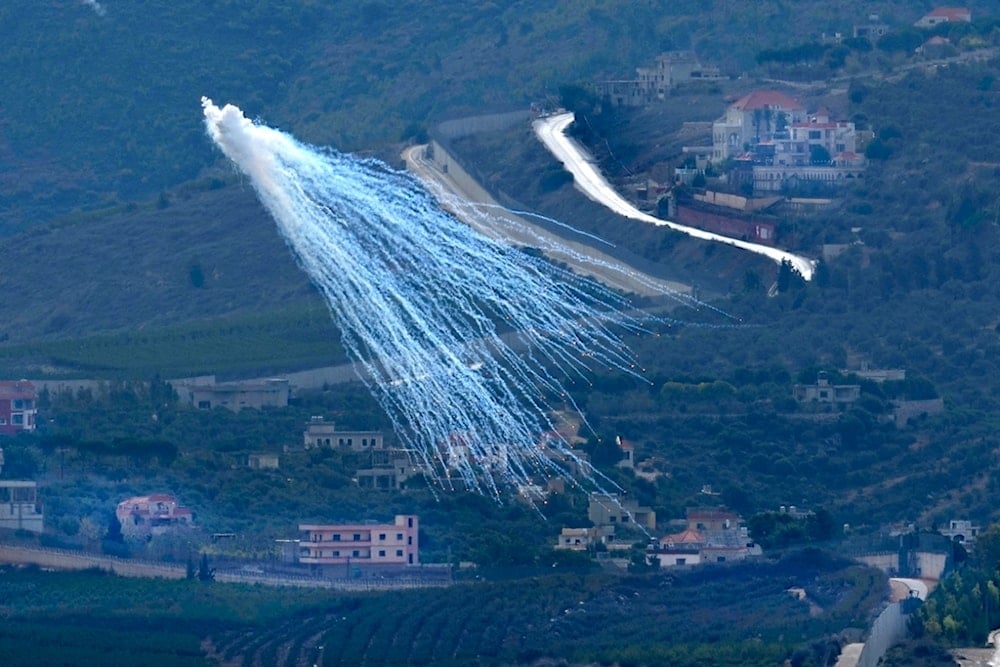Truces not to include Lebanese, Yemeni fronts: Israeli media
This comes after a spokesman for the Qatari Foreign Ministry confirmed that "the humanitarian pause in Gaza will begin at 7 am on Friday, November 24."
-

A white phosphorus shell from Israeli artillery explodes over Kfar Kila, a Lebanese border village with Palestine, as it is seen from Marjayoun town in south Lebanon, Wednesday, Nov. 22, 2023 (AP Photo/Hussein Malla)
In remarks made on the expected humanitarian truce in Gaza, "Israel's" Channel 13 military correspondent Nir Dvori on Friday stated that the resistance in Lebanon and that Yemen ought not to be included in the pauses.
"There is an important point, which is that every ceasefire agreement does not include Hezbollah, the Yemeni front, or areas of the West Bank," he said.
Meanwhile, Alon Ben David, the military affairs commentator on Channel 13 said," I directed this question to high-level military authorities and also to security authorities, and the answer was as follows: We do not have any commitment in return for Hezbollah to cease fire. They are not part of this deal, and from our perspective, what is happening in Gaza is related to Gaza and not related to the north."
This comes after a spokesman for the Qatari Foreign Ministry confirmed that "the humanitarian pause in Gaza will begin at 7 am on Friday, November 24."
Read more: Gaza situation can only be changed by ceasefire: Russian envoy to UN
On a related note, the Al-Qassam Brigades confirmed in a statement that they have reached an agreement on a humanitarian truce and the exchange of prisoners, including women and children under the age of 19, set to take effect on Friday at 7 AM.
The statement clarified that the truce would be effective for a period of 4 days starting from Friday morning, accompanied by a cessation of all military actions by the Al-Qassam Brigades, Palestinian resistance, and the Israeli occupation throughout the duration of the truce period.
The Al-Qassam Brigades added that the truce will include a complete cessation of hostilities by aircraft flying in the southern Gaza Strip, and it will also cease flying for 6 hours daily from 10 AM to 4 PM in Gaza City and the north.
Read more: IOF abduct remains of martyrs in the Indonesian Hospital
It is worth reminding that what is being implemented is a truce - not a permanent ceasefire.
The difference between a truce and a humanitarian pause is that a humanitarian pause, according to the UN Office for the Coordination of Humanitarian Affairs (OCHA), is defined as a "temporary cessation of hostilities purely for humanitarian purposes" and requires "the agreement of all relevant parties," stressing that typically it is implemented for "a defined period and specific geographic area."
Therefore, it is highly likely that fighting is set to resume once the truce expires.
In an exclusive interview with Al Mayadeen on Wednesday, Iranian Foreign Minister Hossein Amir-Abdollahian said that if the cessation of hostilities does not continue, the circumstances in the region would change, and the war's scope would widen.
"We do not look forward to its expansion, but any possibility is on the table if the aggression continues."

 3 Min Read
3 Min Read








